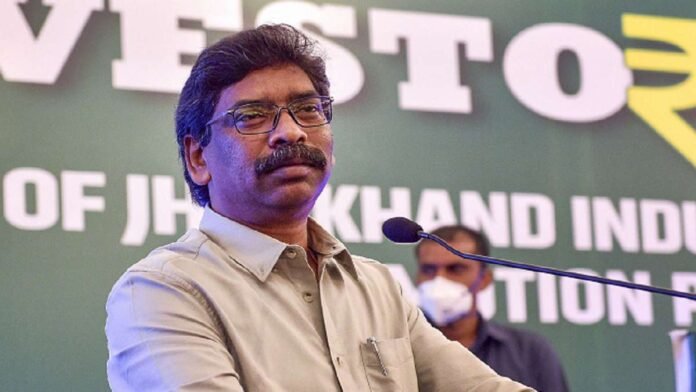In a surprising turn of events, Hemant Soren, the Chief Minister of Jharkhand, has tendered his resignation, paving the way for a potential leadership transition in the state. Speculation is rife that Champai Soren, a trusted loyalist of Hemant Soren and a prominent figure within the Jharkhand Mukti Morcha (JMM), could emerge as the frontrunner for the coveted position of Chief Minister. As political developments unfold in Jharkhand, all eyes are on the future trajectory of the state’s leadership and governance.
Hemant Soren’s decision to resign comes amidst a backdrop of political realignments and power dynamics within the JMM and its coalition partners. While the exact reasons behind his resignation remain unclear, political analysts suggest that internal party dynamics and the need for rejuvenation within the government could be factors driving this decision. Hemant Soren’s tenure as Chief Minister has been marked by both achievements and challenges, and his resignation marks a significant juncture in the political landscape of Jharkhand.
As discussions ensue regarding the next Chief Minister of Jharkhand, all eyes are on Champai Soren, a seasoned politician and close confidant of Hemant Soren. Champai Soren’s credentials within the JMM and his unwavering loyalty to the party leadership make him a compelling contender for the top job in the state. With a background in grassroots activism and a strong connect with the people of Jharkhand, Champai Soren embodies the ethos of the JMM and its commitment to the welfare of the state’s tribal communities.
If appointed as Chief Minister, Champai Soren is expected to bring continuity to the government’s policies and priorities while infusing a fresh perspective into governance. His experience in navigating the complex socio-political landscape of Jharkhand and his track record of grassroots mobilization could prove instrumental in addressing the myriad challenges facing the state, including poverty, unemployment, and development disparities.
Moreover, Champai Soren’s elevation to the position of Chief Minister could signal a generational shift within the JMM leadership and pave the way for younger leaders to assume greater responsibilities within the party and the government. This transition comes at a critical juncture for the JMM as it seeks to consolidate its support base and strengthen its position ahead of upcoming elections in the state.
However, the leadership transition in Jharkhand is not without its share of challenges and uncertainties. As Champai Soren prepares to take on the mantle of Chief Minister, he will be faced with the daunting task of steering the state through a host of socio-economic and political challenges. From addressing the aspirations of marginalized communities to tackling issues of corruption and governance, Champai Soren’s leadership will be put to the test from the outset.
Furthermore, the transition in leadership presents an opportunity for introspection and course correction within the JMM and its coalition government. As the party prepares for the next phase of governance, it must prioritize inclusivity, transparency, and accountability to regain the trust and confidence of the people of Jharkhand. This entails fostering greater consultation with stakeholders, promoting participatory decision-making processes, and delivering on the promises made to the electorate.
In addition, Hemant Soren’s resignation and the potential ascension of Champai Soren as the new Chief Minister of Jharkhand mark a significant chapter in the state’s political evolution. As Jharkhand braces for a leadership transition, the focus shifts to Champai Soren and the challenges and opportunities that lie ahead. With the backing of the JMM and its coalition partners, Champai Soren has the potential to lead Jharkhand towards a new era of progress, prosperity, and inclusive development. However, the success of his leadership will hinge on his ability to navigate the complexities of governance and address the pressing needs of the state’s diverse population.

